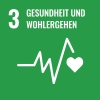
Facing the next public health emergency: How do we know how (un)prepared we are?
- Autoren: Christian Haddad, Hugh Schmidt (both oiip)
- Veröffentlicht: 26. Mai 2023
- Policy Brief Nr.: 4
- SDG: Gesundheit und Wohlergehen
-
 SDG:
SDG:
Gesundheit und Wohlergehen
In the realm of political preparedness, numerous benchmarks, metrics, and best practice models have emerged as integral sites in the ongoing debate. Taking the Global Health Security Index as a specific example, this paper delves into the advantages and disadvantages of such global security rankings. This analysis aims to explore the potential uses and drawbacks of employing metrics to evaluate and modify (inter-)national preparedness plans. Situating this discussion within the broader context of the escalating significance of crisis preparedness and management, particularly in the face of acute disruptions to vital infrastructures and the immense costs they entail, as well as their adverse impact on public health and societal safety.
However, the findings of this analysis reveal a notable political and strategic risk associated with an excessive reliance on these metrics. It is important to recognize that these metrics not only rely on robust scientific methodologies but also rest upon selective assumptions about the world and the definition of threats. The case of the Global Health Security Index serves as an example, as the assumptions underpinning these metrics have proven inaccurate in the face of an actual pandemic. Consequently, overconfidence and misguided approaches to crisis preparedness have ensued.
Additionally, this work offers a concise historical overview of preparedness thinking, outlines the field of Global Health Security, presents the existing metrics employed, and critically reflects on these tools. While metrics provide valuable insights, they should be approached with caution and an awareness of their limitations. By adopting a critical lens and recognizing the political dimensions inherent in these metrics, policymakers can make more informed decisions and develop more effective preparedness plans in an ever-evolving world of crises.
To read more, download the Policy Brief HERE.
(Picture by Kelly Sikkema auf Unsplash)

